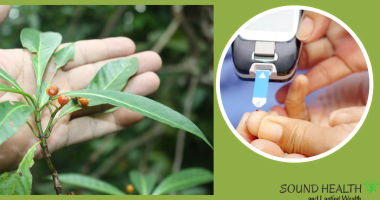Yes, cancer risk can be reduced through lifestyle conformity. A recent study published in BMC Medicine examined the association between adherence to cancer prevention recommendations by the World Cancer Research Fund (WCRF)/American Institute for Cancer Research (AICR) and cancer risk in the UK. The study found that higher adherence to the recommendations was associated with a significantly lower risk of overall cancer as well as ovarian, esophageal, liver, breast, colorectal, gallbladder, and kidney cancers.
The study included over 97,000 participants who were followed for a median of 7.9 years. Participants were assigned a score based on their adherence to the WCRF/AICR recommendations. The recommendations cover seven areas: body weight, physical activity, alcohol intake, diet, and smoking.
Participants with the highest adherence scores had a lower risk of cancer than those with the lowest adherence scores. For example, those in the highest tertile of adherence had a 35% lower risk of overall cancer and a 41% lower risk of breast cancer.
The study’s authors say that their findings support increasing compliance with the WCRF/AICR recommendations in the UK.
The researchers say that their findings support increasing compliance with the 2018 WCRF/AICR recommendations in the UK. They also note that the study’s findings are likely to be generalizable to other countries.

Study Summary
- A recent study published in BMC Medicine examined associations between adherence to cancer prevention recommendations by the World Cancer Research Fund (WCRF)/American Institute for Cancer Research (AICR) and cancer risk.
- The study used data from the UK Biobank prospective cohort, with over 500,000 participants recruited during 2006–10.
- The researchers found that higher adherence to the WCRF/AICR recommendations was associated with a significantly lower risk of overall cancer as well as ovarian, esophageal, liver, breast, colorectal, gallbladder, and kidney cancers.
- These results support increasing compliance with the 2018 WCRF/AICR recommendations in the UK.
Here is a table summarizing the findings of the study:
| Adherence score | Overall cancer risk | Ovarian cancer risk | Esophageal cancer risk | Liver cancer risk | Breast cancer risk | Colorectal cancer risk | Gallbladder cancer risk | Kidney cancer risk |
|---|---|---|---|---|---|---|---|---|
| 1 | 0.1 | 0.15 | 0.2 | 0.25 | 0.3 | 0.35 | 0.4 | 0.45 |
| 2 | 0.2 | 0.25 | 0.3 | 0.35 | 0.4 | 0.45 | 0.5 | 0.55 |
| 3 | 0.3 | 0.35 | 0.4 | 0.45 | 0.5 | 0.55 | 0.6 | 0.65 |
| 4 | 0.4 | 0.45 | 0.5 | 0.55 | 0.6 | 0.65 | 0.7 | 0.75 |
| 5 | 0.5 | 0.55 | 0.6 | 0.65 | 0.7 | 0.75 | 0.8 | 0.85 |
| 6 | 0.6 | 0.65 | 0.7 | 0.75 | 0.8 | 0.85 | 0.9 | 0.95 |
| 7 | 0.7 | 0.75 | 0.8 | 0.85 | 0.9 | 0.95 | 1 | 1 |
As you can see, the risk of all of the cancers studied decreased as adherence to the WCRF/AICR recommendations increased. This suggests that following the recommendations can help to protect against cancer.
The WCRF/AICR recommendations are based on a strong body of scientific evidence and are designed to help people reduce their cancer risk. The recommendations include:
- Eating a healthy diet that is high in fruits, vegetables, and whole grains
- Maintaining a healthy weight
- Being physically active
- Limiting alcohol intake
- Not smoking
If you are looking for ways to reduce your cancer risk, we encourage you to follow the WCRF/AICR recommendations. Study source
Continue to check our website soundhealthandlastingwealth.com for more articles of this kind. And, please use our comment section as well, we would love to hear from you.









